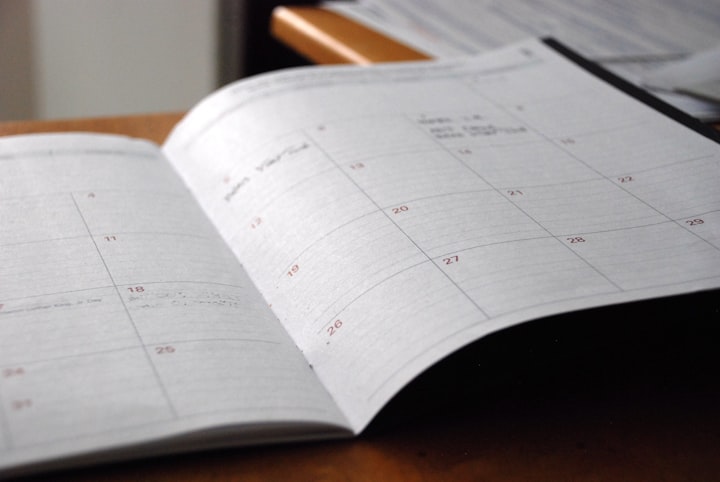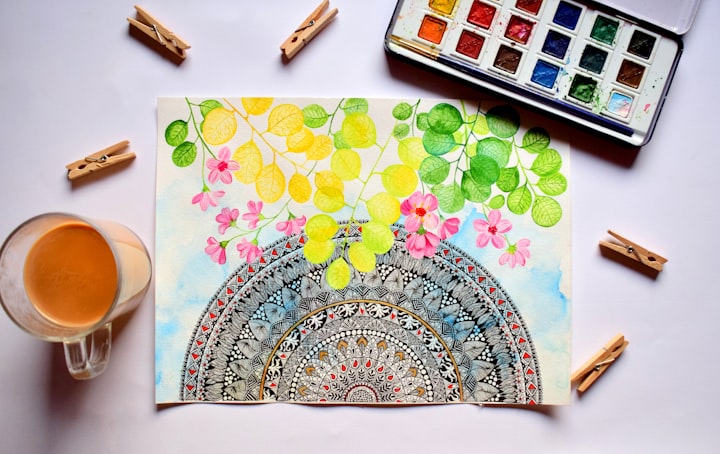
I did not start appreciating the importance of a good night routine until lockdown began and my mind started spiraling out of control.
I began to spend more time on my mobile, just scrolling on social media to escape quarantine anxiety. Instead of using healthy methods of coping, I turned to snacking, sleeping, and electronic gadgets to comfort me.

This went on for a couple of months. It was not until my online classes started in July and I felt a need to get into a routine that I decided to bring a sense of stability in my life.
I targeted the night routine because it's the time of the day when my parents have gone to sleep and I am all alone with my thoughts. While I really enjoy the solitude, sometimes I just feel a sense of purposelessness in life.
This sensation feels like it would consume the entire self.

Also, I have always noticed that following a routine tends to give my mind some stability.
The 3 small changes that I have made in my nighttime routine for my mental health are as follows.
Bring some structure to my next day.

This is my most favorite thing to do.
During the night time when I am covered with my soft, fuzzy blanket I like to whip out my tiny planner and develop goals for the next day.
While I have yearly, and monthly goals, I develop tiny goals for every single day. I make these small goals with the main, bigger goals in my mind.

For example, my larger monthly goal is to finish my assignment by the end of the month. In my daily goals, I would set my aim to finish a bit of the work every day so that I do not have to rush at the last moment.
As a person with loads of anxiety, this has helped me immensely.
A lot of times when the deadline is near, I get really nervous and start freaking out. I get overwhelmed with the stress of work and my mental health suffers.

Even if there are plenty of days left, the feeling of not working on the task keeps me on my toes. As mentioned in this blog,
This tendency to obsess about unfinished tasks is called the Ziergarnik effect, after the Russian psychologist Bluma Ziergarnik, who noticed that waiters only remembered orders before they were served. As soon as the meals were delivered, the memory vanished.
Therefore, to cope with the constant nagging of unfinished work, I like to develop plans and goals to accomplish for the next day, the night before.
I spend 10 minutes thinking about the things I want to achieve the next day.
Tap into the soothing power of Mandala artwork.

Mandala is defined as “a complex abstract design that is usually circular in form. In fact, Mandala is a Sanskrit word that means circle. Mandalas generally have one identifiable center point, from which emanates an array of symbols, shapes, and forms.”
Carl Jung who founded Analytic Psychology was a big proponent of Mandalas. He saw them as a “safe refuge of inner reconciliation and wholeness.”
He believed that the act of creating Mandalas has a calming effect on people’s psychological states.

Researches done in this area has supported his claim. A study concluded that
“structured coloring of a reasonably complex geometric pattern may induce a meditative state that benefits individuals suffering from anxiety.”
I have been trying my hands on Mandala drawing for a few weeks now. I draw and color some portions of the artwork every day. Usually, I spend about 30-45 minutes a day working on my art, while in my bed.

It is an exercise that unwinds the stress and build-up from the entire day.
Think about yourself.

Self-reflection exercises have taught me more about myself than anything else has.
To do this, I like to go out on the balcony attached to my room and just stand there. I spend about 5–10 minutes there and ponder over things that happened that day.
I like to delve into the positives and the negatives of the day, as well as what I could have done instead. I ponder over the goals accomplished and the ones that didn't happen.
Whatever I think about, I always focus on why that happened, and how could I have made it better aspects.

Self-reflection has helped me develop insight into the roots of my unhealthy behavior. This gives me the needed nudge in the direction to change.
Final Thoughts

What I really love about these additions to my night routine is the fact that these activities barely take up any time.
All you need is to keep aside 30 minutes at most.
The relaxation it brings is worth spending this little time on the work.
“Sometimes the smallest step in the right direction ends up being the biggest step of your life. Tiptoe if you must, but take a step.” — Naeem Callaway.
About the Creator
Jjyoti
24. Full-time post-grad student. Part-time writer.
Support me: https://ko-fi.com/jjyoti






Comments
There are no comments for this story
Be the first to respond and start the conversation.